Relocation of SFS Center to Paro Offers New Academic Possibilities
The SFS Fall 2017 program in Bhutan started on 28th August at a new location at Paro. Paro offers a variety of new opportunities for academics as well as a bundle of new experiences for our students.
Paro Valley is one of the most fertile valleys within this temperate region. The landscape of the valley is dotted with some of the most interesting features of Bhutanese culture, tradition, and modernity and Paro town itself is a thriving commercial place with a variety of shopping possibilities and choices of local and international foods.
Just in Paro’s backyard are alluvial rice fields expanding in all directions. The Pacchu River and its tributaries bisect the valley in its entirety before making its way through a rocky gorge towards the south end of the valley.
Perched between giant mountains, Paro seems endless in terms of venues for teaching opportunities for SFS students. It is a place where several gradients of study can be drawn from; such as commercial businesses to rural livelihoods within a span of few kilometers. Likewise, vegetation changes from a very dry element at the valley bottom to natural alpine meadows at the mountain tops. The Pacchu River itself is a laboratory for studying topics from aquatic life to various anthropogenic uses.
The academic possibilities seem endless within the valley itself and further exposure to other landscapes in just a short drive is another outstanding feature of being in Paro. For example, in a matter of four hours from Paro to Punakha, the students had a chance to experience five different forest types and two major agro-ecological zones which directly reflects forest growth theory learned in the classroom to real-time experiences. Not only that, but a bit of adventure like white water rafting in Punatangchu made for an even more exciting Himalayan experience. A quick tour to a major hydro power development site also exposed students to the development aspects of the Bhutan Himalaya.
How about exploring Thimphu, the capital city of Bhutan? Thimphu is home to many cultural and natural sites that portray modern life and realities in Bhutan. A field exercise covering the cultural heritage of Tango Monastery and the influence of Buddhism in conservation of nature was also a rewarding and self–reflective experience for students.
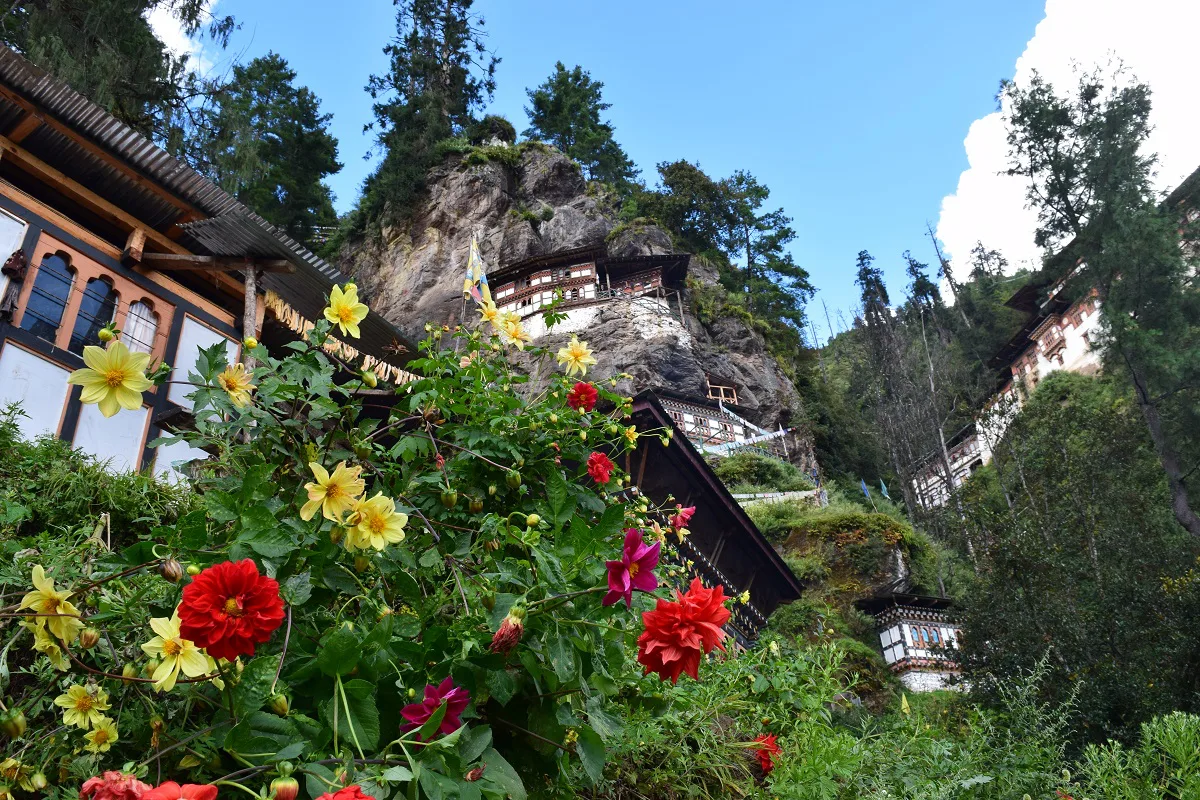
A field exercise brought students to Tango Monastery, just north of the capital city of Thimphu. Photo courtesy of Greg Francois
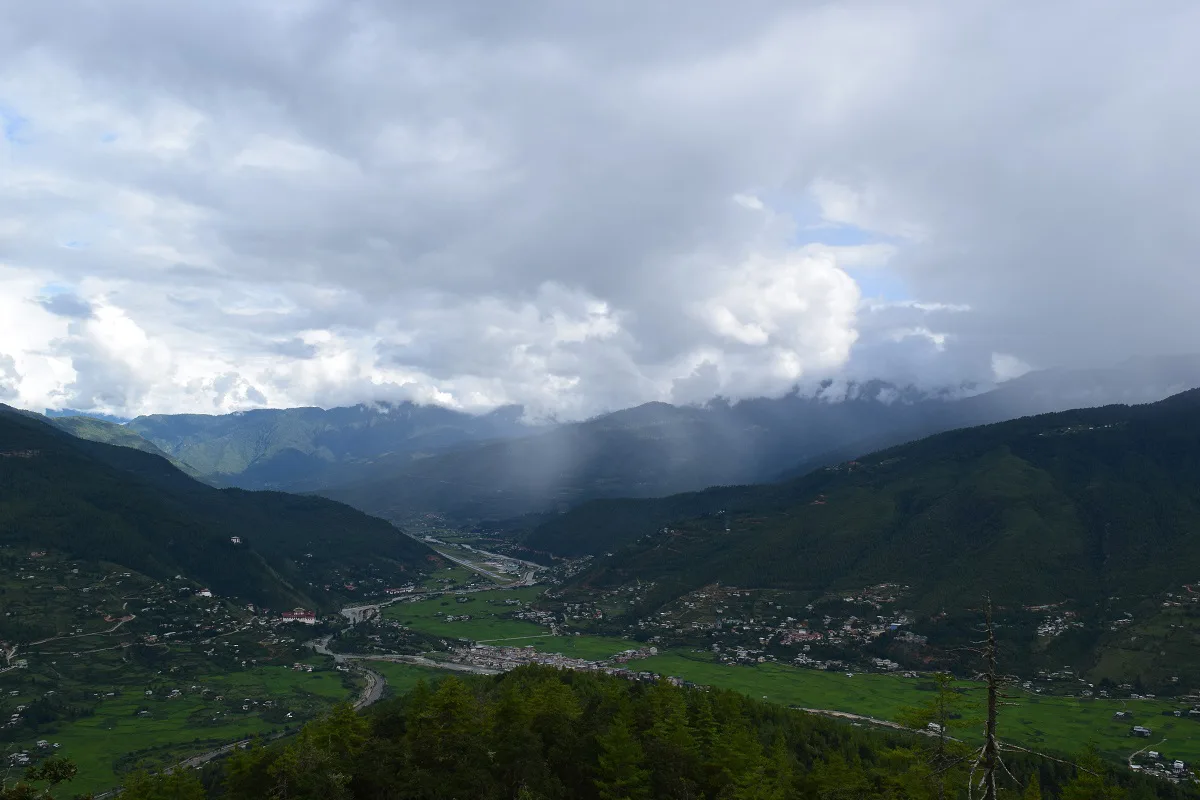
A bird’s-eye view of Paro Valley from the ridgeline behind the new SFS Center in Paro. Photo courtesy of Greg Francois
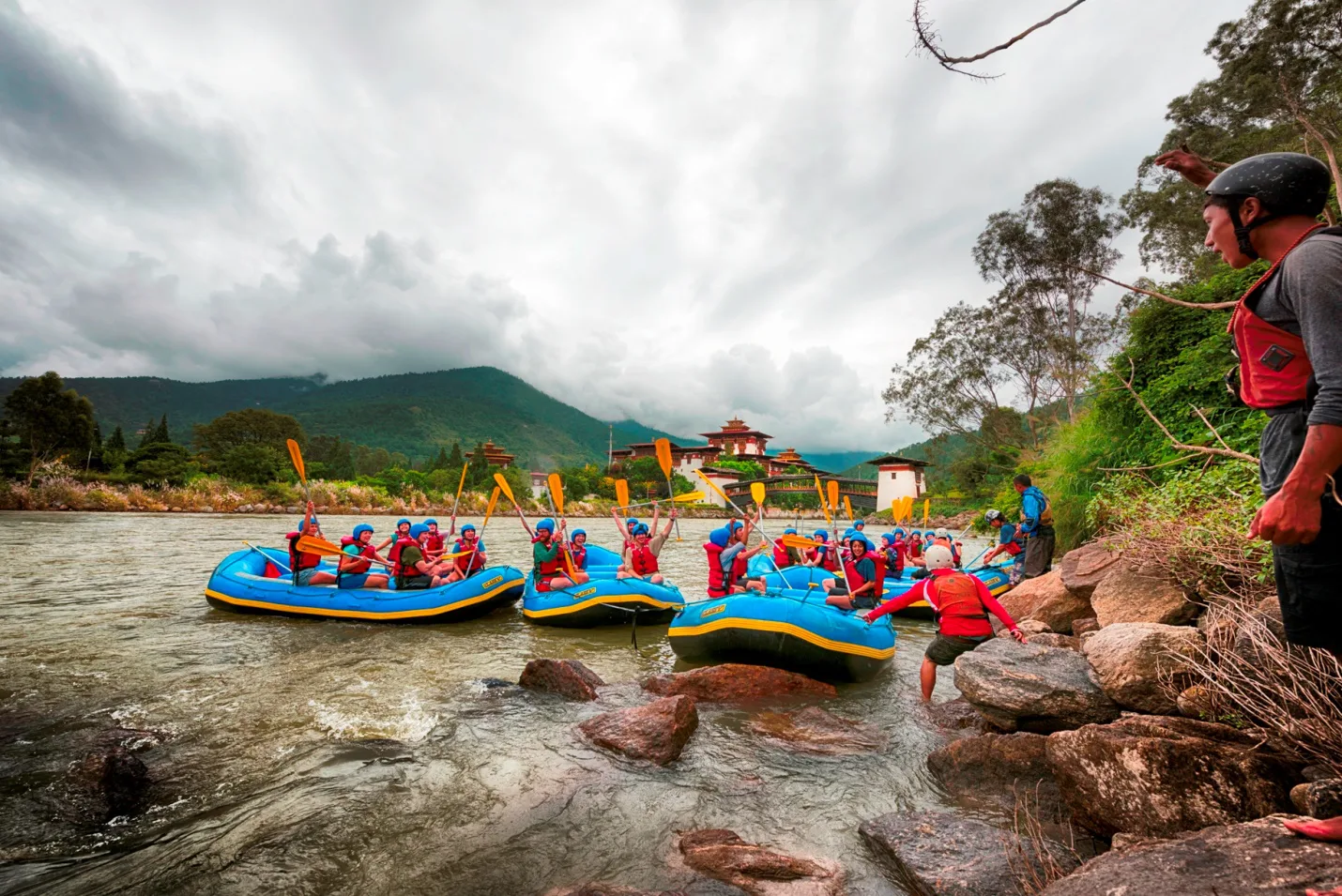
Students took some time off from studying to spend a bit of time rafting in Punakha. Photo courtesy of Nawang Norbu
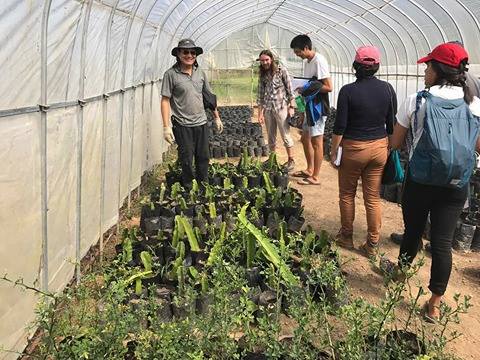
A visit to Bajo Agricultural Center gave students the opportunity to learn how various food crops can be sustainably grown and distributed to farmers in the region. Photo courtesy of Dina Roberts
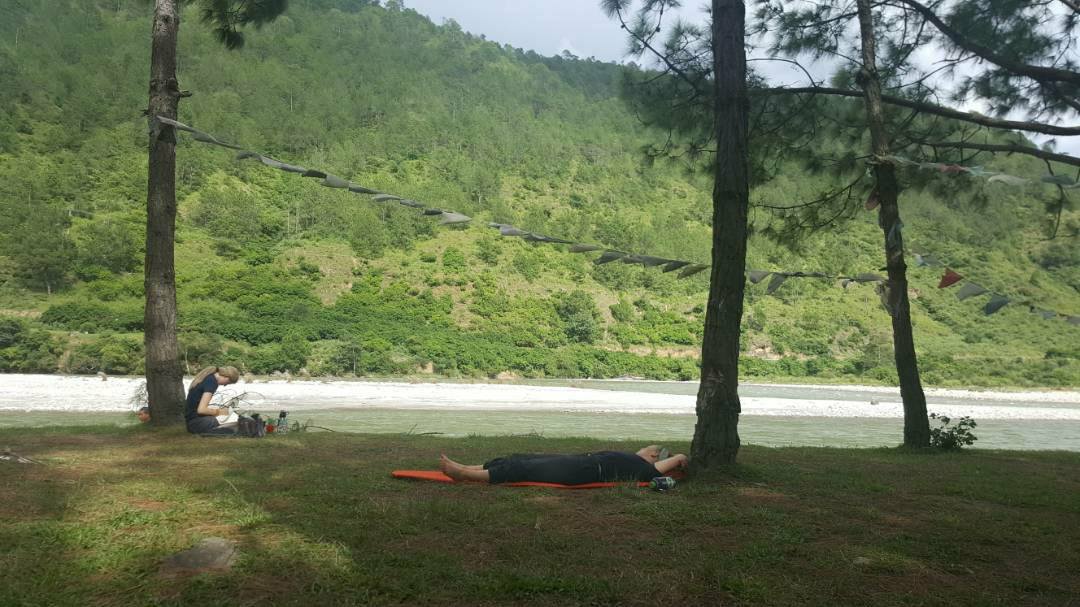
The group’s campsite along the Mochu River in Punakha provided the perfect space for rest and relaxation. Photo courtesy of Nawang Norbu
Related Posts

Camila Rojas: Alumni Spotlight⭐

